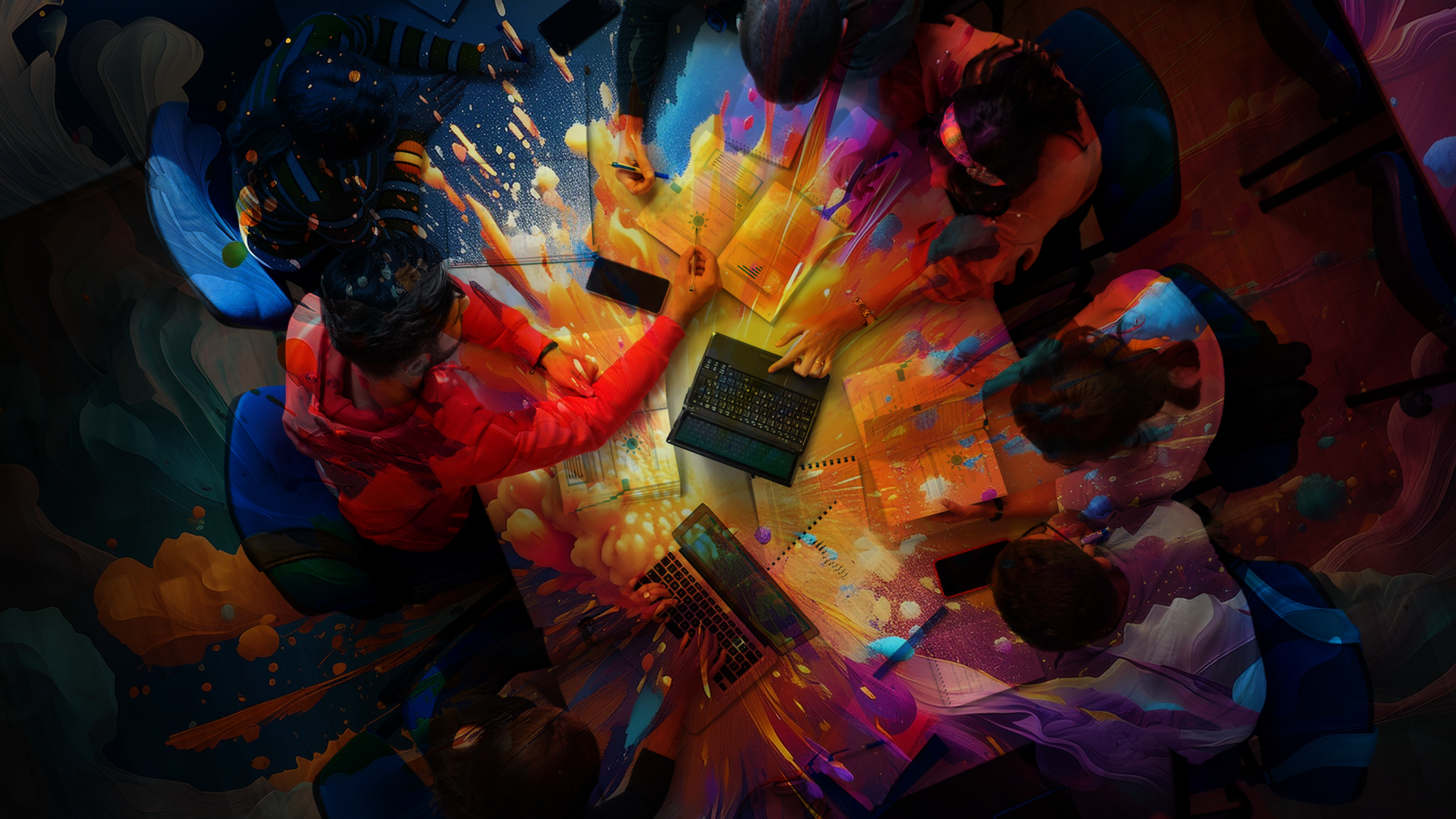Is the real world of work more playful than most schools?
Made in Adobe Express
Good learning focuses on the activity the students will tackle - and less on the teacher talk.
Or as it's been articulated before: less teaching, more learning.
Of course, the aim is to strike a balance, but in the world of digital technology (and now the explosion of AI) there is less and less need to have the teacher stood at the front of a class disseminating information.
The educational institution is not always the fastest at pivoting or implementing innovative teaching tools and methods. Obviously every school is different, but in general it seems we are still clinging onto some long standing traditional methods of teaching and learning which have less and less value in our information-rich and interactive digital world.
And I also don’t think kids should be quietly studying for 6 hours a day…
It's ironic how some schools get pupils to act like little office workers sat at their desks all day - and in many cases it's not even as fun as the real world of work!
At least in many workplaces you have a particular problem to solve, for a particular purpose, for particular people and you have to creatively problem solve and collaborate to get there.
The real world of work is more playful than most schools!
Adobe Express + Firefly AI
As educators, it should be our job to prioritise the experience of the learner. Will they be excited by this activity? Will it make them feel purposeful and proud? Will they have a project to share and show off at the end?
Yes, we have to cover particular objectives, skills and standards, but these can be framed in a myriad of engaging and creative ways.
So why, in some lessons is the activity still just a glorified reading comprehension? Or the task only serves to test how much of the teacher's input at the start has been remembered?
All of my own educational experiences like that were forgettable. Certainly the content that was being taught!
I had a history teacher in secondary school who would just talk about the topic and then write meticulous notes on the blackboard which we had to copy word for word. I think you can guess how I felt about history…
Now, you might be laughing to yourself thinking there's no way teaching like that is happening now. But think of today’s students: when they grow up into a world co-piloted by AI, will they look back on us in that same way, laughing at how archaic our teaching practices were?
Ok, we probably use a smartboard now and print off our worksheets in colour (if the school budget allows). We might even use Google Classroom where we assign digital worksheets. How progressive!
We need to give the students something to do. Like something meaty. Something creative.
Whatever it is, we need to make it something the students want to do, that immerses them in something substantial.
This could be:
Project-based learning
Applied learning
Games-based learning
Gamification
Design Thinking
Now, we may fear that too exciting an activity makes a class more difficult to manage. But in my experience, if the activity is appealing and engaging enough then, yes, the class might be noisier, but they'll all be on task. (Or almost all of them, at least…)
I've just created a custom GPT that lets me type in a topic and it will produce a 6-lesson motivating scheme of work that prioritises creativity and student engagement. It's not perfect of course (AI is trying its best, bless it) but it's a great starting point and arguably creates more engaging schemes of work than I've seen on other curriculums.
So if you don't want to be seen as a dinosaur by your students in the future, you don't HAVE to use AI immediately (though it will soon be the norm) but instead try teaching in a way that is timeless and transcends any technological changes or fads: create a rich emotional and purposeful experience for your learners, tech or not.
Because as Maya Angelou said in her wonderful but outrageously overused quote:
“People will forget what you said, people will forget what you did, but people will never forget how you made them feel.”
If you would like to work together to make timeless learning experiences (that can happily incorporate AI) then get in touch.


